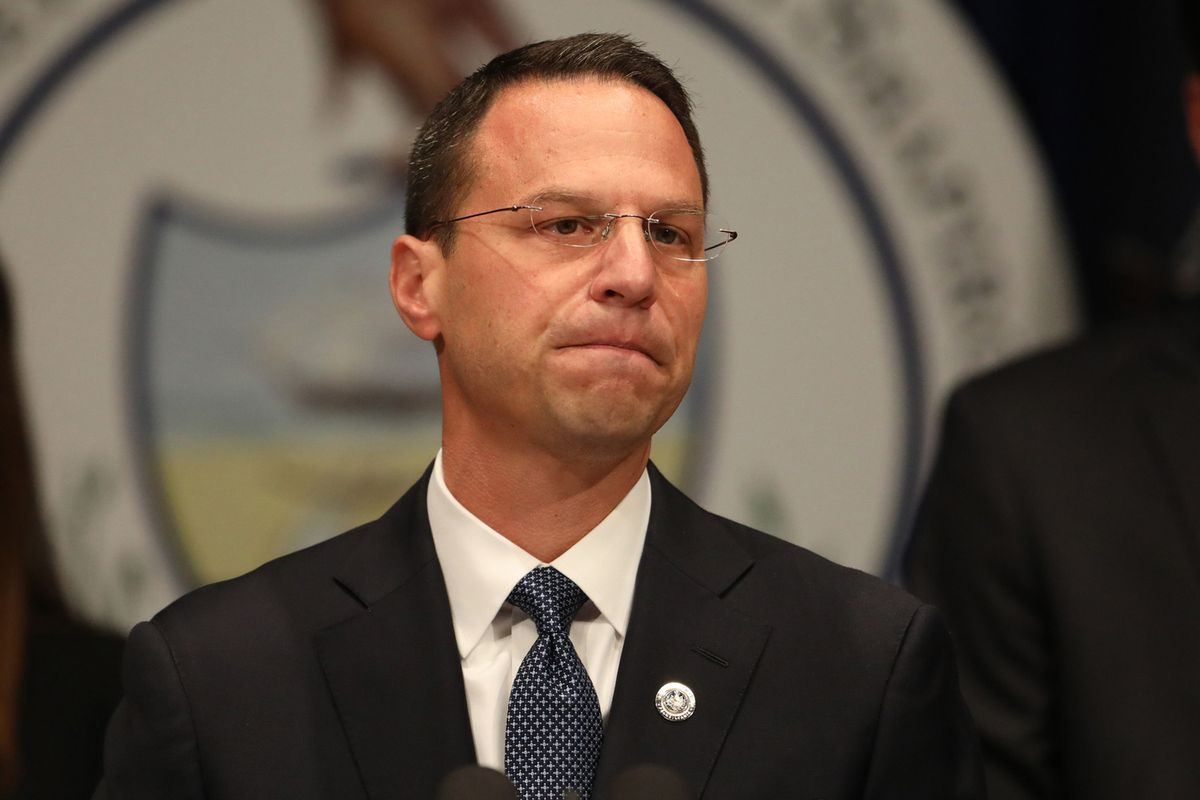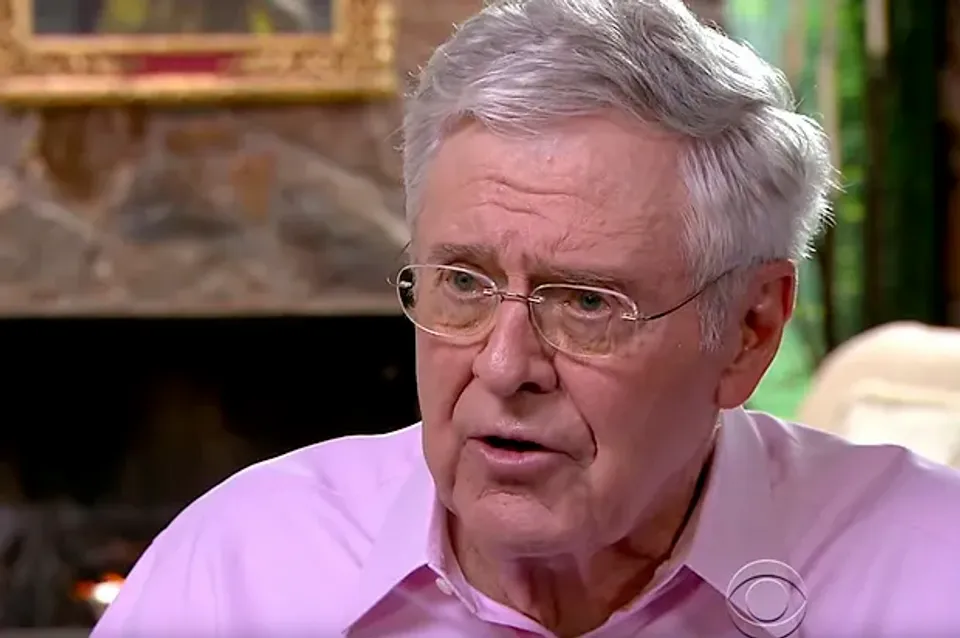Wednesday, September 21, 2022
The Problem That Vouchers Won't Solve
Tuesday, September 20, 2022
CAP And Feckless Democrats On Education
Efforts to censor teachers, omit history, or ban important conversations about race in our schools go way too far. Our children deserve an education honest about who we are, demonstrating integrity in how we treat others, and creating a sense of belonging so every child has the freedom to learn, grow, and pursue their dreams.
Monday, September 19, 2022
PA: Josh Shapiro Joins GOP On School Vouchers
Well, shit. There are no pro-public education candidates for governor in Pennsylvania.
Josh Shapiro is for vouchers.
In an interview with the Patriot News, Shapiro said, "And I’m for making sure we add scholarships like lifeline scholarships to make sure that that’s additive to their education. That it gives them other opportunities...to be able to help them achieve success”
Nor is his support an interview bobble. From his campaign website:
Josh favors adding choices for parents and educational opportunity for students and funding lifeline scholarships like those approved in other states and introduced in Pennsylvania.The Lifeline Scholarship bill is a GOP education savings account bill--a super-voucher bill-- currently sitting in the appropriations committee in the House; the Senate has passed their version. Not just charters. Not just traditional vouchers. But nice shiny, super vouchers. Take a bunch of money from public schools (based on state average cost-per-pupil, not local numbers, so that many districts will lose more money than they would have spent on the students). Handed as a pile of money/debit card which can be spent on any number of education-adjacent expenses. (Excellent explainer at greater lengths here.)
The state will audit the families at least once every two years. The bill contains the usual non-interference clause, meaning that the money can be spent at a private discriminatory school, and no one will be checking to see if the school is actually educating the student. The bill is only old-school in that it uses the old foot-in-the-door technique of saying that this is just to rescue students from "failing" public schools (but includes no provisions to determine if the child has been moved to a failing private school).
Choicers are ecstatic.
The Center for Education Reform, the ardently pro-school choice anti-teacher advocacy group, has gleefully sent out the news. Choice advocate David Hardy from the right-tilted Commonwealth Foundations says, "I am happy that Mr. Shapiro has indicated his willingness to consider for poor families what has obviously worked for his family. The families most satisfied with their children's educational experience are those who were able to choose it."
Pastor Aaron Anderson, who operates a private religious school of his own and has a degree from Liberty University, thinks this is super.
Could it be that both Republicans and Democrats finally agree that a child’s zip code, ethnicity, or class should not determine whether they have access to a high-quality education?Sunday, September 18, 2022
ICYMI: Fall Cleaning Edition (9/18)
Saturday, September 17, 2022
Praying Coach Is Too Busy For His Old Job
The answer, as laid out in detail in a dissent by Justice Sotomayor, is that Kennedy's "observance" was not brief, quiet, or personal. As Sotomayor writes
Official-led prayer strikes at the core of our constitutional protections for the religious liberty of students and their parents, as embodied in both the Establishment Clause and the Free Exercise Clause of the First Amendment.
The Court now charts a different path, yet again paying almost exclusive attention to the Free Exercise Clause’s protection for individual religious exercise while giving short shrift to the Establishment Clause’s prohibition on state establishment of religion.
To the degree the Court portrays petitioner Joseph Kennedy’s prayers as private and quiet, it misconstrues the facts.
Also, after noting that the majority just threw out the Lemon test, she writes
In addition, while the Court reaffirms that the Establishment Clause prohibits the government from coercing participation in religious exercise, it applies a nearly toothless version of the coercion analysis, failing to acknowledge the unique pressures faced by students when participating in school-sponsored activities. This decision does a disservice to schools and the young citizens they serve, as well as to our Nation’s longstanding commitment to the separation of church and state. I respectfully dissent.
The dissent uses pages to lay out the many details of how Kennedy was not quiet or brief, including his invitations to opposing teams to join in, and that very special time where he went out and led a student prayer right in front of the administrator who has just asked him not to. Why the District didn't just fire him for insubordination I do not know.
The weekend of the second game, which the Knights also won, Kennedy appeared with former President Donald Trump at the Trump National Golf Club in New Jersey. He saw Trump get a religious award from a group called the American Cornerstone Institute.
Coming up this month, Kennedy’s scheduled to give a talk as part of a lectureship series at a Christian university in Arkansas.
“Place a PR/Publicity Request,” invites his personal website, where he’s known as Coach Joe.
It’s an increasingly surreal situation for the Bremerton schools. They were ordered to “reinstate Coach Kennedy to a football coaching position,” according to court documents. But the now-famous coach is out on the conservative celebrity circuit, continuing to tell a story about “the prayer that got me fired” — even though Bremerton never actually fired him.
Why Permissionless Education
So much human potential gets wasted because of it. When I went down the rabbit hole of blockchain technology years ago, I came across the word “permissionless.”
I instantly fell in love.
Friday, September 16, 2022
Charter Dress Code Case Pushing For SCOTUS. Here's Why We Should Care
In North Carolina, Charter Day School back in 2016 was sued by parents who objected to a dress code requiring girls to wear skirts, jumpers, or skorts. Charter Day School is part of the network of charters operated by Roger Bacon Academy, one of the charters that focuses on a "classical curriculum" in a "safe, morally strong environment," which meant, apparently, none of those pants-wearing girls in their school (It also supposedly means things like sentence diagramming in Kindergarten and Latin in 4th grade).
In 2019, a federal judge passed down the ruling that any public school in the country would have expected-- a dress code requiring skirts for girls is unconstitutional. The school quietly retired the item in the dress code.
The two judges, both Trump appointees, ruled that contrary to the assertion of the lower court, that charter schools should not be considered state actors, and are therefore not subject to the Equal Protection Clause of the 14th Amendment. The decision pointed to the larger issue in the case--deciding whether or not charter schools are public schools.
The federal appeals court was clear: Charter schools are not public schools. They are not state actors.
Sherwin added that the skirt rule violates equal protection because it's based on the old notion that "girls are fragile and require protection by boys." Judge Wilkinson, who was part of the three-judge panel in the previous decision, lamented the end of the "age of chivalry." The majority noted that such an age was also the age "when men could assault their spouses" and that chivalry "may not have been a bed of roses for those forced to lie in it."
Sherwin reports that the court rejects the notion that the dress code was okay because it was oppressive to both genders. Discriminating against both men and women, the court notes, "does not eliminate liability, but doubles it."
And Sherwin passes on a great note from Judge Keenan (the 1 on the original ruling) who separately wrote against the argument that the code wasn't harming girls because they still got good grades. “We cannot excuse discrimination because its victims are resilient enough to persist in the face of such unequal treatment." "Nevertheless she persisted" apparently does not excuse whatever she must persist in the face of.
Kudos also to Judge Wynn who, Sherwin reports, "says the dissent's comparing school choice to ordering steak or salmon at a restaurant 'leaves a bad taste in the mouth. Subjecting girls to gender discrimination that causes lasting psychological damage is not the same thing as ordering fish.'"
The National Alliance for Public Charter Schools applauded the ruling:
The importance of this case could not be overstated, as it was the first time a federal appellate court considered whether public charter school students deserve the same constitutional civil rights protections as district public school students. The en banc court clearly and unequivocally affirmed that charter schools are public schools and, accordingly, must be bound by the US Constitution. Moreover, public charter school students have the same constitutional and civil rights as their district public school peers.
Aaron Streett is an attorney with Baker Botts, a multinational law firm (where both Amy Coney Barrett and Ted Cruz once worked), and that he's the chair of their Supreme Court and Constitutional Law Group. Streett says that the majority opinion "contradicts Supreme Court precedent on state action...and limits the ability of parents to choose the best education for their children." After the ruling came down, Streett played coy about whether they would appeal or not; now we're past coyness.
The appeal is going straight after the underlying issue of the case
In its petition, the school argues the ruling by the appeals court is flawed because it identifies Charter Day School as a state actor. The school argues it is a privately run school that receives public funding through its charter, and therefore is not a government-run entity.
"The (court of appeals) decision ... profoundly threatens this model," said a statement from school officials in a Monday news release. "This holding undoes the central feature of charter schools by treating their private operators as the constitutional equivalent of government-run schools."





